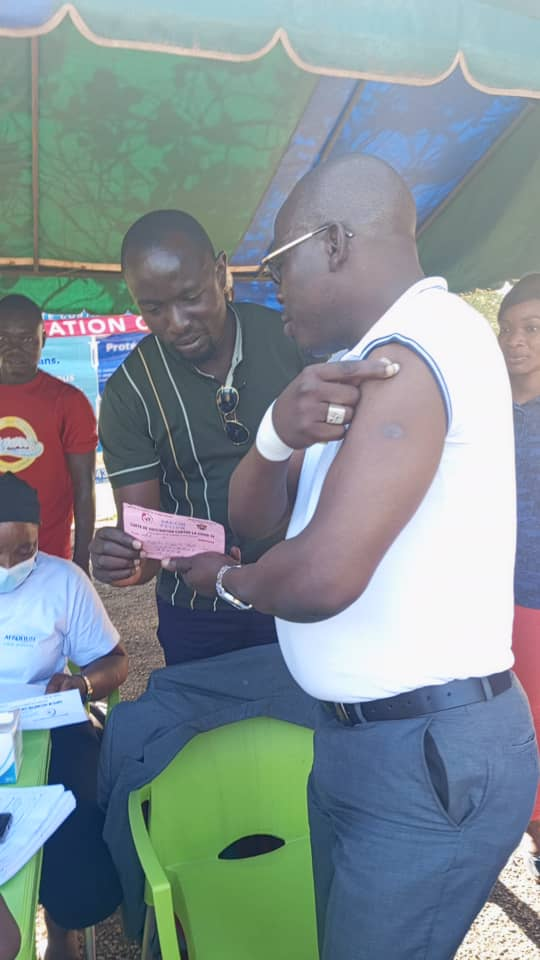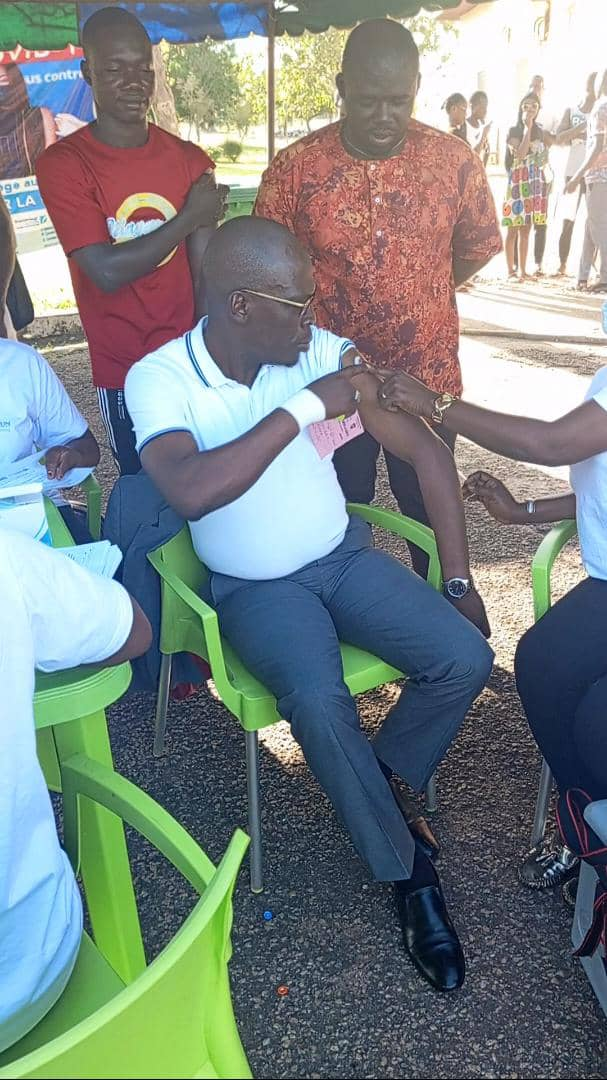Overcoming vaccine hesitancy in Ivorian Universities
Daloa is four hours north west of Abidjan, Côte d’Ivoire. Being a local agricultural hub, you will spot some of the world’s best coffee, cacao, and banana plantations on the way there. Its 500,000 inhabitants thought little of COVID-19 when news of the pandemic first arrived. Most of those are students and University staff since the city also hosts one of the biggest agriculture, ecosystems, and environment campuses in the country.
Misinformation spread faster than the virus, so by the time the first COVID-19 cases were reported in Daloa, the majority of residents were adamantly against receiving the vaccine. As word of mouth carried news of the vaccine’s availability across the county, many students and university staff had already made up their minds. Unions on campus began disrupting vaccination clinics and tearing down informational posters. Vaccinators grew fearful of going out into communities.
“Before, I wasn’t interested in vaccination and believed that COVID did not exist in my country.” -4th Year student Binate Nassara Kadege, a once strong anti-vaccine advocate.
With only 39% of its population vaccinated, Cote d’Ivoire has intensified its efforts to reach their target of 70% coverage vaccination by the end of December 2022. Supporting it in this task, AFROHUN Cote d’Ivoire, among other partners, has taken the lead in raising awareness on COVID-19 vaccination on campuses in Daloa and 4 other big college cities.
With support from the American Rescue Plan Act (ARPA), AFROHUN Cote D’Ivoire partnered with the Provincial Health Authorities and the University to roll out a COVID-19 vaccine promotion campaign across the provinces.
Assouan, 7th year Med student, received an AFROHUN student support grant to join the project and train other students on vaccine awareness and communication. He is now in contact with multiple student groups and clubs working to convince their peers and friends to get vaccinated. During the vaccination campaigns, they explain to their communities the facts about vaccines they learned with Assouan.
“Our team is currently working to raise awareness and deconstruct the false information received. Far from propaganda, it creates an exchange of understanding, and works closely with students, faculty and administration.”
Dr. Otchoumou, or Doc Outchoumou as he is known on campus, is the University of Daloa Doctor. He recently embarked on a mission to lead vaccination campaigns on campus.
“We planned vaccination campaigns every month, we set our vaccination tents in front of student dorms but no one would show up to get vaccinated. It is only when we leave that students get out of their rooms”. Dr. Otchoumou
Many people he spoke with were hesitant to get vaccinated because of inaccurate COVID-19 vaccine information they had seen on social media and heard in their communities. There is also a stigma and a collective trauma from HIV which is still among the leading causes of death in 2019. Although HIV and the novel coronavirus affect the body in different ways, there are striking similarities in how these viruses have impacted communities in Cote D’Ivoire. People do not want to be seen in COVID-19 clinics or vaccination campaigns as they are afraid to be marginalized in their communities. AFROHUN has understood that and adjusted their messaging to help demystify COVID-19.
Recently AFROHUN CDI invited the Dean of the University of Korgho to receive his booster shot in front of students and faculty to promote vaccination. This was instantly followed by a large number of students signing up to get vaccinated.
Dr. Assouan, AFROHUN CDI, giving the vaccination card to the Dean of the University of Korhogo
When asked about the ARPA project, Dr. Monique, Country manager of AFROHUN CDI, says “It is a great thing!We were lucky to have the ARPA funds which helped us expand our network from one University to the other 4 big campuses in the country. Aside from working on COVID, we also introduce the OH concept and start Student One Health ICS and have these unis as partners. We talk to deans and profs to move things forward. Also, the open mildness of faculty helps us make things smooth, thanks to the support of the Deans we got the green light to expand forward.”
Dr. Monique Kouassi says that the days are long, but rewarding because of the visible impact she is making on the community. Sometimes, she’s not sure when she’ll be heading home to her family, but she relishes the chance to give back to her parents’ homeland.








